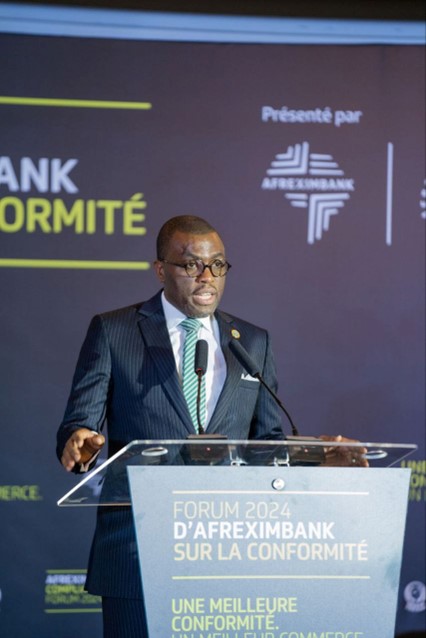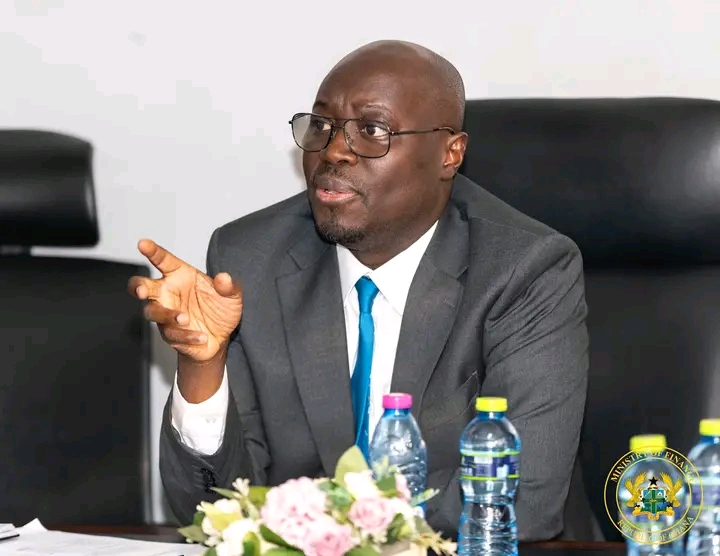By: Emmanuel Amoah
As African trade continues to underperform compared to global standards, financial institutions are turning to advanced digital tools to navigate complex regulatory landscapes without stifling economic growth. The push for digital innovation was a key theme at the 9th Afreximbank Compliance Forum held in Dakar, Senegal, where industry leaders gathered to discuss the future of African trade.
The event, organized in partnership with the Inter-Governmental Action Group against Money Laundering in West Africa (GIABA), received sponsorship from banks like Vista Bank, GCB Bank, and Rawbank, as well as compliance solution providers such as Lexus Nexis, Finanstra, and Vneuron. The focus of the discussions was on streamlining compliance processes in line with the Financial Action Task Force’s (FATF) standards, particularly concerning the identification of Ultimate Beneficial Owners (UBOs).
The FATF, an international body that combats money laundering and terrorist financing, plays a crucial role in ensuring transparency in financial transactions by requiring the identification and verification of UBOs. The forum examined the far-reaching impact of these mandates on African trade, particularly in relation to anti-money laundering (AML) and counter-terrorism financing (CFT) efforts.
Artificial intelligence (AI) emerged as a key solution for managing compliance processes. During sessions on topics like ‘Compliance Control Systems and their Use in Financial Crime Risk Management’ and ‘The Impact of AI on Compliance Systems,’ experts showcased how AI could revolutionize the compliance landscape. By automating tasks such as UBO verification, AI can reduce the regulatory burden on African businesses while maintaining high standards of transparency and accountability.
Jean Arsène Yerima, Afreximbank’s Regional Chief Operating Officer for Francophone West Africa, highlighted the potential of digital tools in his keynote address. “Digitization offers smarter, more efficient ways to manage financial crime risks by automating key processes using AI and machine learning,” he noted.
These digital innovations come at a crucial time. Despite the implementation of the African Continental Free Trade Area (AfCFTA) in 2021, intra-African trade fell from 14.5% in 2021 to 13.7% in 2022. Much of this downturn is attributed to the challenges posed by stringent compliance requirements, especially concerning trade-based money laundering (TBML).

Compliance technology providers such as Lexus Nexis and Elucidate also took center stage, showcasing AI-driven solutions that automate complex compliance tasks. These technologies are essential for meeting FATF standards on UBO identification, providing a pathway for African businesses to meet global compliance requirements while fostering trade.
However, challenges remain. As Mr. Yerima pointed out, “Infrastructure deficits and limited digital literacy in some regions are significant obstacles.” A collaborative effort between governments, financial institutions, and tech providers will be necessary to overcome these barriers.
Despite these hurdles, the shift towards digitization in African trade compliance is gaining momentum. If successfully implemented, these technologies could greatly enhance trade efficiency, reduce risks, and unlock Africa’s vast economic potential. As Mr. Yerima concluded, “With the right digital tools and a commitment to both compliance and growth, Africa can create a thriving, interconnected economy that is fully integrated into global trade networks.”




